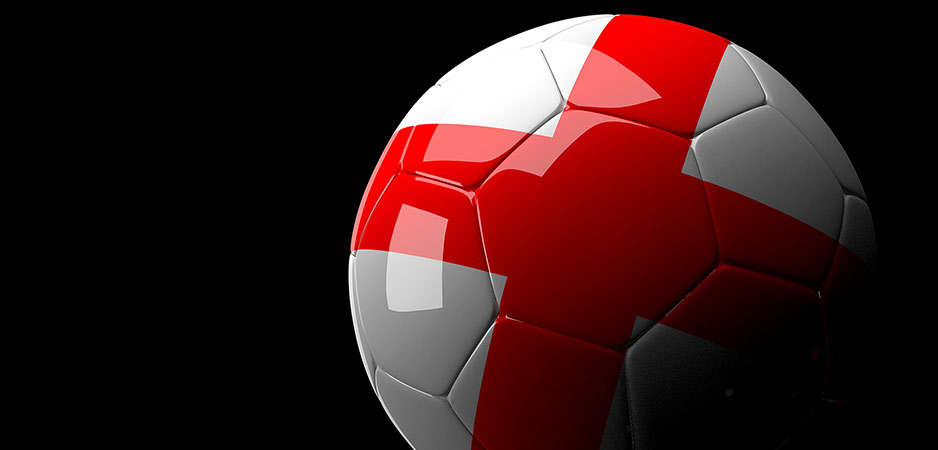On the morning preceding England’s narrow defeat in the European Championship final, The New York Times published an article containing a heart-warming lesson about the power of sport to overcome and eliminate the scourge of xenophobic racism. Rory Smith, The Times’ football specialist based in Manchester, England, wrote: “Euro 2020 has become, in other words, a moment of genuine national unity.”
What Is Behind Football’s Persistent Racism?
Smith quotes the article by anti-racism activist Shaista Aziz in The Guardian. Ms. Aziz exulted in the humanizing effect England’s football team was having on a nation that has been “a tiptoe away from racism and bigotry.” She seemed convinced everyone in England believed “this team is playing for all of us.” That special “moment of genuine national unity” proved to be short-lived.
Today’s Daily Devil’s Dictionary definition:
National unity:
A fragile and often superficial sentiment of fraternity in modern nations provoked alternatively by the success of a team in a popular sport (e.g. winning a championship) or by the collective hatred of a real or imagined enemy following a destructive incident (e.g. 9/11)
Contextual Note
On Monday, The Guardian ran a story with the title, “Boris Johnson condemns ‘appalling’ racist abuse of England players.” Immediately following the England team’s defeat, social media provided proof of the illusory quality of the sense of national unity that the Three Lions’ success in reaching the final had provoked. It also highlighted the perverse link between political authority and the raw xenophobic emotion that some politicians feel they must encourage to establish and validate that authority.
Modern democracies in our competitive, liberal civilization desperately want to believe in the gradual but inevitable triumph of virtue over vice. Thanks to the phenomenon of “progress,” which they define as their DNA, the superstitions and injustices of the past are condemned to fade away under the pressure of common sense and the respect of honest competition.
The Times’ Rory Smith anticipated the thrill of knowing that “tens of millions of British fans would be watching avidly, glorying not just in the team’s success on the field but off it as well.” This would be a turning point in the nation’s history and its troubled relationship with its colonial past. In his mind, the spectacle offered by the gladiators in the arena heralded a new dawn for a people still in the throes of existential doubt after centuries of playing the role of a global empire that, seven decades after its dismantlement, was still seeking to understand its legitimate place in a diverse world.
Smith saw the fans “as a microcosm of a nation seemingly more enthusiastic about its evolving identity as a more tolerant, multiracial and multi-ethnic society than is often suggested.” On or off the field, inside or outside the stadium, Smith’s fervent wish appears to be just that, a vain wish. On social media, which exists in its own abstract space but reflects some of the deeper reality, a part of the nation insisted on reminding optimists like Smith of its competitive disunity.
Ever since Pierre de Coubertin launched the modern Olympic Games in 1896, sport and nationalism have gravitated toward each other. This has created the hope in some sectors that the spirit of cooperative teamwork at the core of sport could triumph over the very human tendency to let petty rivalries lead to conflict, enmity and crime and even world war. But today’s liberal society is driven by two forces: winning — the proof of one’s superiority — and money. Because of that need for the most competitive talent, diversity has become a feature of all sports, including those like football, rugby and even tennis that were developed by Britain’s 19th-century white elite. Football emerged in the 20th century as the most universal and popular of British sports.
The mingling of athletic performance, commercial interest, politics and nationalism was inevitable. The internationalization of sport’s economy that began obeying the super-competitive rules of economic globalization, based on optimizing the extraction of resources, led to an increasing focus on economic goals and the transformation of athletic performance into a form of hyperreal or superhuman spectacle.
Until recently, politicians understood the advantage of defining sport as something entirely separate from politics. They showed a certain condescending respect for the performance of athletes, simply congratulating them for their competitive spirit. But the simultaneous effects of sport’s economic globalization, its financialization and the colonial heritage of Western nations led to a transformation of the traditionally perceived local and tepidly nationalistic character of teams. In Britain and the United States, for most of the 20th century, professional athletes were in their grand majority white. For a long time, non-whites were entirely excluded. Modern sport literally developed as a bastion of white supremacy.
The pressures of economic competition combined with increasingly vocal frustration of excluded groups across Western societies led to the diversity now prevalent in all professional sports. A further trend, magnified by the media and the advertising dollars that support the media, has turned athletes into superheroes and hyperreal celebrities on a par with Hollywood actors. They belong to a stratosphere political leaders can no longer hope to rival.
Historical Note
Soon after his election in 2016, US President Donald Trump broke the entente cordiale that previously existed between sports and politics by intervening directly in the controversy that arose around Colin Kaepernick’s silent protest against police brutality toward black Americans. Trump deemed the act of kneeling during the national anthem an insult to the valiant troops that American presidents have the habit of sending abroad to be maimed and killed in the name of demonstrating the seriousness of the nation’s enduring mission, which consists of maiming and killing people elsewhere in the world who fail to pledge allegiance to the unimpeachable moral standards of the United States.
After the protests sparked by George Floyd’s murder last year, Kaepernick’s gesture became a universal symbol of passive resistance to persistent racism. Out of electoral expediency, Trump and his followers turned the issue into a major component of the ongoing “culture wars” that have effectively shattered the last trace of the illusion of unity in the profoundly Disunited States, a nation where insult, shaming, calumny and canceling have become an art, if not a science.
Once Kaepernick’s gesture had gone universal, most politicians sought to distance themselves from the issue. But not Boris Johnson and his team. As the political profiteer who achieved his life’s ambition of becoming prime minister thanks to his xenophobic campaign for Brexit in 2016, Johnson may have felt obliged to appeal to his base and encourage suspicion of the “darkies’” intent. Johnson’s team branded it “gesture politics,” denying its stated purpose focused on social justice. Home Secretary Priti Patel and Johnson himself declined to condemn the booing some members of the public addressed to the kneeling players.
The symbolism of sport in today’s culture reflects the evolution of the modern economy. Just as the economy, despite its noble claims, is not really about innovation, efficiency, abundance and meeting the needs of the people, sport isn’t about developing and celebrating the beauty of “the beautiful game” and other popular sports. The money factor trumps all the old associations with personal and collective achievement.
Now it’s simply about winning and losing. Just as the driving force of the economy is the profit motive — maximizing one’s earnings and crushing the competition, which also means depriving those involved of their livelihood — the only thing the public retains from a sporting event is the celebration of the winner and witnessing the humiliation of the loser. At least in sports, the losers are still well paid and their livelihood rarely compromised.
Pierre de Coubertin famously claimed for the revived Olympic Games that the aim “is not to win, but to take part; the important thing in Life is not triumph, but the struggle. To spread these principles is to build up a strong and more valiant and, above all, more scrupulous and more generous humanity.” De Coubertin recounted that he was inspired to promote the Olympic Games by the link he saw between the emphasis on sport in Britain’s elite educational culture and the global triumph of its empire in the 19th century. Although it was for the most part officially dismantled in the 1950s, could this be a case of Boris’ empire striking back?
*[In the age of Oscar Wilde and Mark Twain, another American wit, the journalist Ambrose Bierce, produced a series of satirical definitions of commonly used terms, throwing light on their hidden meanings in real discourse. Bierce eventually collected and published them as a book, The Devil’s Dictionary, in 1911. We have shamelessly appropriated his title in the interest of continuing his wholesome pedagogical effort to enlighten generations of readers of the news. Read more of The Daily Devil’s Dictionary on Fair Observer.]
The views expressed in this article are the author’s own and do not necessarily reflect Fair Observer’s editorial policy.
Support Fair Observer
We rely on your support for our independence, diversity and quality.
For more than 10 years, Fair Observer has been free, fair and independent. No billionaire owns us, no advertisers control us. We are a reader-supported nonprofit. Unlike many other publications, we keep our content free for readers regardless of where they live or whether they can afford to pay. We have no paywalls and no ads.
In the post-truth era of fake news, echo chambers and filter bubbles, we publish a plurality of perspectives from around the world. Anyone can publish with us, but everyone goes through a rigorous editorial process. So, you get fact-checked, well-reasoned content instead of noise.
We publish 2,500+ voices from 90+ countries. We also conduct education and training programs
on subjects ranging from digital media and journalism to writing and critical thinking. This
doesn’t come cheap. Servers, editors, trainers and web developers cost
money.
Please consider supporting us on a regular basis as a recurring donor or a
sustaining member.
Will you support FO’s journalism?
We rely on your support for our independence, diversity and quality.






